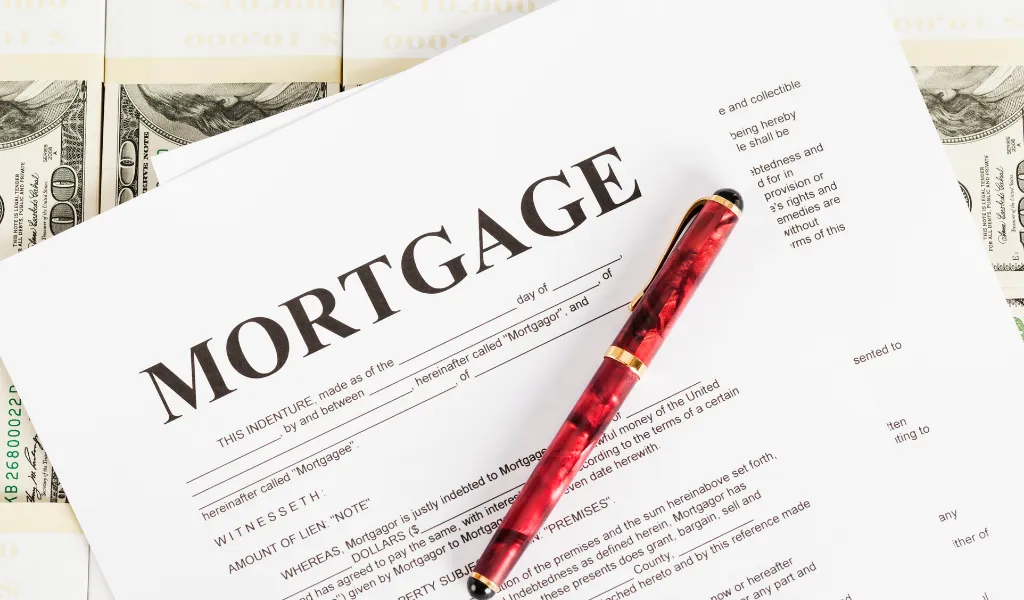When it comes to finding the right mortgage, you should know all the options available to you. You do not necessarily have to go for traditional mortgages, especially since they involve interest. If you are looking for mortgages that comply with Sharia law, then you can opt for an Islamic mortgage. This guide will cover everything about mortgages that do not involve interest and are a halal way to buy a property. It will answer questions such as how does Islamic mortgage work? What are the pros and cons? How to apply for one?
First, let’s discuss the definition of an Islamic mortgage. Then, we can move on to its advantages and disadvantages.
What is an Islamic mortgage?
A halal way to buy a property in the UK is called an Islamic Mortgage. For Muslims who want a Sharia-compliant form of finance, this type of mortgage alternative to standard mortgages.
Now, how do they differ from traditional mortgages? Well, the major difference is that they do not involve any repayment of interest. As per Sharia law, interest is not lawful.
This kind of mortgage is also called a Sharia mortgage or a halal mortgage. Please note that not all Islamic scholars agree to the definition of a Sharia mortgage.

How Does Islamic Mortgage Work in the UK?
Sometimes, an Islamic Mortgage is called a Home Purchase Plan (HPP). These mortgages do not fall under the category of a classic mortgage. Instead, they involve a business partnership between a bank and an individual. Or a lender and an individual.
This is because in Islam, one of the guiding principles is that you cannot make money from money. It is forbidden. Fair trade is the only method through which the creation of wealth is permissible. A fair trade must involve the sharing of rewards and risks. Since a traditional mortgage requires paying interest on the money you borrow, it is not within the parameters built by the Sharia law. Any form of finance involving interest is, therefore, not permissible.
Technically, an Islamic mortgage is not a mortgage. Instead of borrowing money and paying interest in the amount, the buyer agrees to monthly capital and rental payments. This is because a bank buys a property on behalf of the buyers. They are the legal owner. The individual needs to make monthly payments for a specific term. Once the term ends, the buyer gets the legal ownership of the property.
Even today, Islamic mortgages are quite niche as only a few lenders provide them. If you want to find out more about getting such a mortgage, you should contact a specialist broker. Find someone who has a firm grip on how these mortgages work. They will help you find lenders who offer them and get one that complies with Sharia law fully.

What are the Types of Islamic mortgages?
In the UK, you will find three main types of Islamic mortgages. Each one of their approaches is slightly unique.
Following are the different types of Islamic mortgages:
Diminishing Musharaka (Partnership)
The most common form of Islamic mortgage is the Diminishing Musharaka. This mortgage is the closest one to the concept of a Home Purchase Plan, out of all three. It involves a co-ownership agreement. You, the borrower, and a bank make a joint purchase in this scenario. Then, you both own a share of the property each. However much you place as a deposit is your share. While the bank receives the remainder of the share. Then, how does Islamic mortgage work?
To own the property outright, you must buy the remaining shares. You can do so by making monthly payments. These consist of capital and rent. You can buy the shares that the lender owns over a specific term. Usually, this term lasts for 25 years, just like a traditional mortgage.
Suppose you are looking to purchase a property worth £200,000. You then place a deposit of £40,000. For the remaining £160,000, you use a Diminishing Musharaka. In this case, initially your share is 20% and the lender’s share is 80%. As you continue to make monthly payments, the lender’s shares decrease while yours increases. This is why it is called ‘diminishing’.
To summarise, a Diminishing Musharaka is the Sharia-compliant alternative to a repayment mortgage.
Ijara (Leasing)
Now, let’s discuss Ijara. This type of arrangement’s basis lies on the principle of ‘lease to own’. In this situation, you find a property and agree on the price with the seller. Then your bank buys the house on your behalf. Which makes them the legal owner of this property.
Your share of the property is the amount of deposit you place. Usually, it is between 10 to 20%. This does not change until you make repayment of the remaining balance completely.
Two elements make up your monthly repayments. These are rent and capital. While the rent remains constant throughout the specific term, the capital accumulates. It does so until it is enough to pay the remaining amount.
Once you repay the capital fully and the term ends, you receive the legal ownership of the property. The Sharia-compliant alternative to an interest-only mortgage is called an Ijara arrangement. So, how does Islamic mortgage work?
Murabaha (Profit)
Moving onto the third type of Islamic mortgage. Mostly, people use Murabaha to buy commercial properties. Here, a mortgage lender will buy the house on your behalf. Then, they will sell it to you for a higher price immediately.
Let’s look at an example. Suppose you want to buy a property that is worth £500,000. Additionally, you want to purchase it through the Murabaha method. Then, the mortgage lender will buy this property on your behalf at its current price. Once they own it, they will sell it to you for a higher price of £600,000. However, this sale is on a deferred payment basis. This means you pay the amount over a specific term, but you legally own the property from the onset. Thus, how does Islamic mortgage work?
Since this is a fair-trade transaction, the profits that the lender makes are acceptable under the Sharia law. It is not money made from money.
Although the approaches are different for all three mortgages; they have the same guiding principle. The principle is to provide people with alternatives to interest-bearing loans.
Indeed, it is tricky to decide which of these is right for you. That is why you should reach out to an expert Islamic mortgage broker. They will help you find the one that suits you best. Not only this, but they will ensure that the deal is Sharia-compliant. Also, they will assist you with the paperwork and negotiate with the lender for you.
How Much are the Deposits, Costs, and Fees for Islamic Mortgages?
Depending on your personal circumstances and the lender, deposits for Islamic mortgages can range from 5% up to 20%. Of course, if you place a higher deposit, then your monthly payments are lower. Furthermore, you have a better chance of getting a favourable deal.
Other than your deposit, there are costs that you must bear. You must budget for the following costs when purchasing a property:
- Stamp Duty Land Tax (if it applies).
- Survey and conveyancing.
- Legal fees (both for the lender and yourself).
- Contents and buildings insurance.
Are Islamic Mortgages More Expensive?
The cost of your Sharia mortgage depends on the terms of the lender you pick. However, it is likely that this mortgage will require larger deposits and incur higher administration fees than a traditional mortgage. Therefore, you should know how does Islamic mortgage work.
There is no need to worry. You can reach out to an Islamic mortgage broker with experience. They will find those lenders who offer better terms. Most importantly, they will make sure it is not too costly. It is also their responsibility to identify deals that do not have restrictive deposit requirements.
Buy-to-let Islamic Mortgages
Undoubtedly, buy-to-let properties are still a profitable investment. Fortunately, if you want to pursue this opportunity, then there are Islamic mortgage providers that can offer you options. However, you will only come across a few niche lenders, as the market is very small. You can get help from expert advisors. They will negotiate a good deal on your behalf.
Depending on the lender you opt for, the fees and deposit will vary. Once again, you need the advice of a broker with experience. They will probably save you both money and time. Moreover, they will navigate you through the deals that are presently on offer. Then, how does Islamic mortgage work?
What are the Advantages and Disadvantages of Islamic mortgages?
Of course, pros and cons exist with every mortgage type. Before you commit, you must understand the following benefits and drawbacks of Islamic mortgages:
Pros of an Islamic Mortgage
Following are the benefits of getting an Islamic mortgage:
- There is no need to pay interest.
- A halal way to get a mortgage for anyone who wants to follow Sharia law.
- It is cheaper than renting a property instead of buying since you pay rent along with your mortgage.
- You can redeem your mortgage early and sell your property whenever you want without paying an early redemption charge. Please note that this is subject to the terms of your mortgage.
Cons of an Islamic Mortgage
Following are the downside to getting an Islamic mortgage:
- Even if house prices decline, the mortgage amount remains the same. Although this is true for traditional mortgages as well.
- You are likely to get a leasehold property rather than a freehold property. This means less control and more costs.
- Lenders often charge additional fees. Which means it is likely more expensive than a conventional mortgage.
- Since there are complexities, solicitors can charge more fees to handle the conveyancing for such mortgages.
- You will most probably require a higher deposit since 5% deposits are not acceptable.
- In comparison to standard mortgages, the number of lenders that offer Islamic mortgages is lower. As a result, you do not have a lot of choice.
| Pros | Cons |
| No interest | More expensive |
| Complies with Sharia | Low number of lenders |
| Early redemption of mortgage | Higher deposit |
What Risks Exist with Islamic Mortgages?
Even though the legal owner of the property is the bank you chose, you need to cover plenty of costs. You must pay costs for general maintenance, insurance, and Stamp Duty Land Tax (SDLT) on the initial purchase. So, how does Islamic mortgage work?
Just like traditional mortgages, it is necessary to add all these expenses to costs of the purchase plan.
If you fail to make your monthly payments, then the risk of repossession is still present. This is true even though there is no borrowing in an Islamic mortgage.
By purchasing a property for you, a lender is taking on more of the risk, or so it can seem. Therefore, you can stay on their property if you can keep making the rent payments. They are allowing you to live there on this basis. In case you fail to do so, they have the right to take whatever action is necessary.
Does Your Mortgage Comply with Sharia Law?
You can clearly see in the options available to you whether your lender offers Islamic mortgages. At least one of the three types of such mortgages should be available to you. The three types are Ijara, Murabaha, and Musharaka. Thus, how does Islamic mortgage work?
Furthermore, it is necessary for your lender to have certification under Sharia compliance. Usually, an authority in Sharia law certifies the lender. Please note that if a lender offers Islamic mortgages, then their regulation by the Financial Conduct Authority (FCA) is necessary. Therefore, you receive protection just like other FCA-regulated mortgages.
Where and How Can You Get an Islamic Mortgage?
In the UK, there are four major providers of Islamic mortgages as of right now. You can contact expert advisors who work with such providers. The good news is that the Islamic mortgage market is growing. More and more providers are now offering such mortgages. For example, Habib Bank and Stride up are going to launch their own products soon.
How to Apply for a Sharia Mortgage in the UK
Now, how does Islamic mortgage work? Following are the steps you need to take when you apply for an Islamic mortgage:
Step One: Study Your Options and their Risks
You should familiarise yourself with the different types of Islamic mortgage available to you, for starters. Additionally, you should learn about the risks that come with them. Do in-depth research on which option is right for you.
Step Two: Ready All Your Paperwork
The next step is getting all the necessary documents in order. These include proof of income, your ID, evidence of deposit funds, and bank statements going back three months at least. You should get this ready in advance so that you can save time on your mortgage application.
Step Three: Contact a Specialist Broker
With the growth of a market, comes benefits for a consumer. Naturally, there is more competition and more choice.
In this situation, the services of a broker are crucial. Not only must they have experience in Islamic mortgages but also, they must understand the requirements of the Muslim community. This way they can remain Sharia-compliant, and you can get a fully compliant mortgage.
Conclusion
To conclude, Islamic mortgages differ from conventional mortgages. They can also cost you more. However, they come with their own advantages. You should find out about the risks and the cons of getting an Islamic mortgage before you commit. Furthermore, you should seek expert advice. They will help you find lenders that have experience and get you the best deals possible. It is best to know all your options and their risks to make an informed decision.








